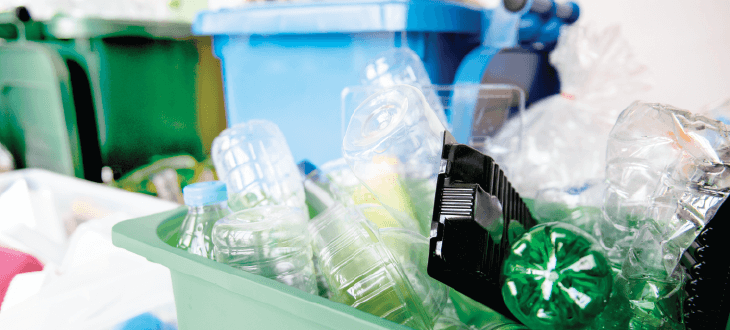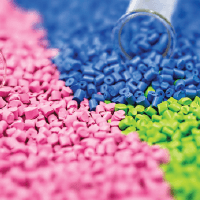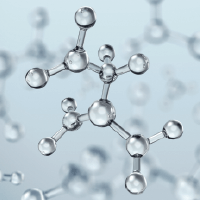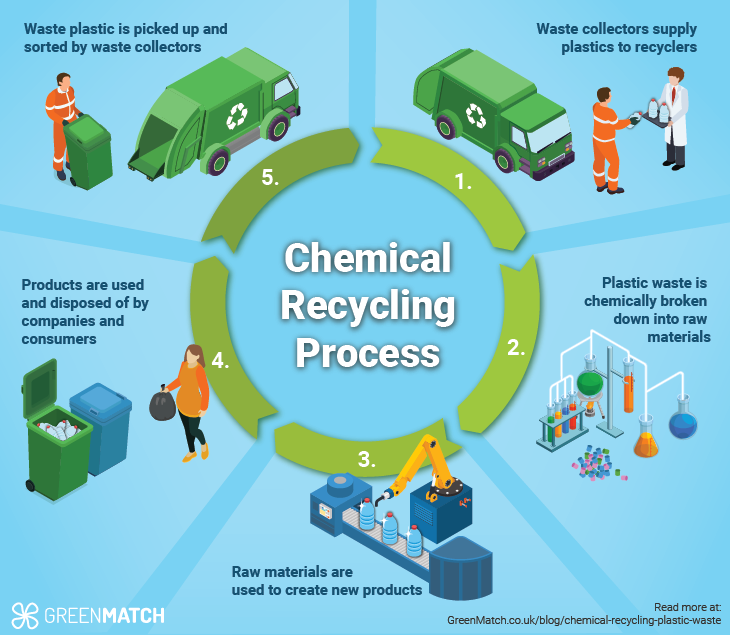https://www.facebook.com/ads/preferences/edit/
/nhttps://advertise.bingads.microsoft.com/en-us/resources/policies/personalized-ads
/nhttps://www.linkedin.com/psettings/advertising
/nhttp://www.youronlinechoices.com/uk/your-ad-choices for more information on common third party cookies used for targeted marketing.</p>\n","modalButton":"Save and close","overlayTitle":"We use cookies to give you the best browsing experience.","overlayText":"<p>We and our partners use cookies on our website to improve your browsing experience, personalize content and ads, provide social media features, and analyze our traffic. If you continue interacting we assume that you are happy to receive all cookies on this website. However, you can change your <span class=\"cookie-toggler\">cookie settings</span> at any time at the bottom of this page. Read more about our <a href=https://www.greenmatch.co.uk/"/cookie-policy/">cookie policy</a>.</p>\n","overlayButton":"Save and close"},"whyUse":{"title":"Why Use GreenMatch?"},"productGuide":{"back":"Back"},"page404":{"title":"Sorry, We Can't Find That Page","topText":"<div class=\"text shadow-container col-12 col-lg-10 col-xl-8 mb-4 p-3\">\n<p>…something went wrong or you might have followed an old link to a page that doesn’t exist anymore.</p>\n<p class=\"mt-3\">Were you looking for any of these by any chance?</p>\n<ul class=\"links\">\n<li><a href=https://www.greenmatch.co.uk/"https://www.greenmatch.co.uk/solar-energy/solar-panels/">Solar Panels</a></li>\n<li><a href=https://www.greenmatch.co.uk/"https://www.greenmatch.co.uk/heat-pumps/">Heat Pumps</a></li>\n<li><a href=https://www.greenmatch.co.uk/"https://www.greenmatch.co.uk/boilers/">Boilers/n
plastic pollution</a> problem. Taking used plastic and chemically converting it into raw materials allows us to create entirely new plastic products without using fossil fuels. </p>\n\n\n\n<p>But with an estimated 300 million tonnes of plastic waste being produced every year across the globe, is chemical recycling the key to the problem? Or is it simply another emissions-heavy process?</p>\n\n\n\n<p>Some recent studies have raised concerns that this way of chemically recycling waste plastic may be <a href=https://www.greenmatch.co.uk/"https://pirg.org/updates/new-report-shines-light-on-the-problems-with-chemical-recycling//" target=\"_blank\" rel=\"noreferrer noopener nofollow\">more harmful</a> to the environment than producing new (or ‘virgin’) plastics.</p>\n\n\n\n<p>In this article, we’ll look at the chemical recycling process, finding out what it involves and the many benefits and opportunities. We’ll also ask, is this the solution our planet needs to combat plastic pollution, or is there more to be considered?</p>\n\n\n\n<h2 id=\"what\">What is chemical recycling?</h2>\n\n\n\n<p>Chemical recycling is a waste management process that can convert various plastic (polymer) waste forms into their core components. It does this by transforming a plastic’s chemical structure. This transformation produces materials suitable for manufacturing new plastics or other products. </p>\n\n\n\n<p>Chemical recycling, as a term, includes several different technologies and processes. For example, some may use heat or chemical reactions to break down plastics. There are also differences in the type of product they create, which could be raw materials for making new plastics, fuel or other chemicals. </p>\n\n\n\n<p>Below are three leading technologies used in chemical recycling:</p>\n\n\n\n<h3><strong>Purification</strong></h3>\n\n\n<div class=\"wp-block-image\">\n<figure class=\"alignright size-full\"><img loading=\"lazy\" width=\"200\" height=\"200\" src=https://www.greenmatch.co.uk/"https://cdn.greenmatch.co.uk/cdn-cgi/image/format=auto/2/2023/09/SEP23_1_01-Chemical-Recycling_Pellets.png/" alt=\"Chemical Recycling Waste New Plastic Pellets\" class=\"wp-image-77629\" srcset=\"https://cdn.greenmatch.co.uk/cdn-cgi/image/format=auto/2/2023/09/SEP23_1_01-Chemical-Recycling_Pellets.png 200w, https://cdn.greenmatch.co.uk/cdn-cgi/image/format=auto/2/2023/09/SEP23_1_01-Chemical-Recycling_Pellets-150x150.png 150w\" sizes=\"(max-width: 200px) 100vw, 200px\" /></figure></div>\n\n\n<p>This technique uses a solvent to dissolve plastics, which are then treated through a series of purification steps. The purification process can separate the polymer from any additives or contaminants, leaving just the material required for reuse. </p>\n\n\n\n<p>This process can work in many ways, such as using different solvents. This means manufacturers can select the exact polymer or material they need from the plastics for their new product.</p>\n\n\n\n<h3><strong>Depolymerisation</strong></h3>\n\n\n<div class=\"wp-block-image\">\n<figure class=\"alignright size-full\"><img loading=\"lazy\" width=\"200\" height=\"200\" src=https://www.greenmatch.co.uk/"https://cdn.greenmatch.co.uk/cdn-cgi/image/format=auto/2/2023/09/SEP23_1_01-Chemical-Recycling_atoms.png/" alt=\"Chemical Recycling Plastic Waste Polymer Molecules\" class=\"wp-image-77626\" srcset=\"https://cdn.greenmatch.co.uk/cdn-cgi/image/format=auto/2/2023/09/SEP23_1_01-Chemical-Recycling_atoms.png 200w, https://cdn.greenmatch.co.uk/cdn-cgi/image/format=auto/2/2023/09/SEP23_1_01-Chemical-Recycling_atoms-150x150.png 150w\" sizes=\"(max-width: 200px) 100vw, 200px\" /></figure></div>\n\n\n<p>This process, also known as ‘chemolysis’, converts a polymer into a molecular form known as a monomer. These molecules can be almost identical to those used in creating plastics, which means this process produces a high-quality material for developing new products. </p>\n\n\n\n<p>However, the drawback to this process is that it can only be used on a specific type of plastic (e.g. polyester). It cannot be used for most plastics in our waste system.</p>\n\n\n\n<h3><strong>Thermal conversion</strong></h3>\n\n\n<div class=\"wp-block-image\">\n<figure class=\"alignright size-full\"><img loading=\"lazy\" width=\"200\" height=\"200\" src=https://www.greenmatch.co.uk/"https://cdn.greenmatch.co.uk/cdn-cgi/image/format=auto/2/2023/09/SEP23_1_01-Chemical-Recycling_Fire.png/" alt=\"Chemical Recycling Plastic Waste Heat Thermal\" class=\"wp-image-77627\" srcset=\"https://cdn.greenmatch.co.uk/cdn-cgi/image/format=auto/2/2023/09/SEP23_1_01-Chemical-Recycling_Fire.png 200w, https://cdn.greenmatch.co.uk/cdn-cgi/image/format=auto/2/2023/09/SEP23_1_01-Chemical-Recycling_Fire-150x150.png 150w\" sizes=\"(max-width: 200px) 100vw, 200px\" /></figure></div>\n\n\n<p>Thermal conversion uses heat to break polymers down into molecules. However, this technique produces fundamental chemicals that need further processing before they can be used to create new plastics. This greatly benefits some manufacturers as it provides more flexibility in their production. </p>\n\n\n\n<p>Whilst other technologies and techniques are being used, many processes are still in development, so there is hope these techniques will have more capabilities.</p>\n\n\n\n<h2 id=\"how\">How is chemical recycling different from regular recycling?</h2>\n\n\n\n<p>The recycling process we’re familiar with when our <a href=https://www.greenmatch.co.uk/"https://www.greenmatch.co.uk/blog/10-countries-producing-most-plastic-waste/">plastic waste</a> is collected from our homes is known as ‘mechanical recycling’.</p>\n\n\n\n<p>In this process, plastic items will usually be sorted, washed, ground down (creating pellets) and re-processed into something new. However, there are limitations to the quality of new materials that can be made this way, as well as a limited number of times the product can be recycled. </p>\n\n\n\n<p>With chemical processes, however, these limitations are decreased. By taking a plastic back to its molecular level, there is, in theory, no end to the amount of times it can be recycled. This is a great leap forward, considering the <a href=https://www.greenmatch.co.uk/"https://www.greenmatch.co.uk/blog/how-to-be-more-eco-friendly/">eco-friendly environmental impact of producing new plastics. </p>\n\n\n\n<p>Many companies using chemical recycling techniques see this process as a way to ‘close the loop’ by creating an endless life cycle for waste plastics. The diagram below demonstrates this theory.</p>\n\n\n\n<figure class=\"wp-block-image size-full\"><img loading=\"lazy\" width=\"730\" height=\"635\" src=https://www.greenmatch.co.uk/"https://cdn.greenmatch.co.uk/cdn-cgi/image/format=auto/2/2023/09/SEP23_1_01-Chemical-Recycling.png/" alt=\"Chemical Recycling Process Plastic Waste\" class=\"wp-image-77630\" srcset=\"https://cdn.greenmatch.co.uk/cdn-cgi/image/format=auto/2/2023/09/SEP23_1_01-Chemical-Recycling.png 730w, https://cdn.greenmatch.co.uk/cdn-cgi/image/format=auto/2/2023/09/SEP23_1_01-Chemical-Recycling-300x261.png 300w\" sizes=\"(max-width: 730px) 100vw, 730px\" /></figure>\n\n\n\n<h2 id=\"benefits\">The benefits of chemical recycling</h2>\n\n\n\n<p>With 60% of our plastic waste currently ending up in landfills or scattered across our natural environments, finding ways to tackle <a href=https://www.greenmatch.co.uk/"https://www.greenmatch.co.uk/blog/plastic-pollution-facts/">plastic pollution</a> is essential to ensuring our planet can thrive. </p>\n\n\n\n<p>Chemical recycling offers new, alternative options that can actively <a href=https://www.greenmatch.co.uk/"https://www.greenmatch.co.uk/blog/zero-waste-tips/">reduce waste</a>, promote sustainability and eliminate our reliance on fossil fuels to produce plastics. </p>\n\n\n\n<p>The benefits of this technique, however, are far-reaching. Below are some of the critical ways chemical recycling can make a difference.</p>\n\n\n\n<h3>Reducing plastic pollution</h3>\n\n\n\n<p>Plastic production has sharply increased since the 1960s, with an estimated 139 million tonnes of single-use plastic recorded in 2021. This amount of plastic leads to vast plastic pollution dumped in landfills and waterways. </p>\n\n\n\n<p>One of the biggest dangers to this ongoing pollution is <a href=https://www.greenmatch.co.uk/"https://www.greenmatch.co.uk/blog/2019/02/microplastic-pollution/">microplastics. As plastic products break down, they release small, incredibly harmful plastic fragments into the environment. These microplastics threaten our wildlife and can also make their way into our food supply – meaning we ingest them, too! </p>\n\n\n\n<p>By finding a sustainable way to eliminate this environmental waste and using chemical recycling methods, we can reduce the amount of harmful pollutants in our oceans and our food.</p>\n\n\n\n<h3>Lowering emissions</h3>\n\n\n\n<p>During their lifecycle, plastics emit <a href=https://www.greenmatch.co.uk/"https://www.oecd.org/environment/plastics/increased-plastic-leakage-and-greenhouse-gas-emissions.htm/" target=\"_blank\" rel=\"noreferrer noopener nofollow\">3.4% of global greenhouse gas emissions</a>, with <strong>90% </strong>coming directly from the production process and conversion of fossil fuels.</p>\n\n\n\n<p>With natural gas and oil being used extensively to make plastic products and the massive demand for plastic worldwide, it’s unsurprising that the emission levels would be so high. However, chemical recycling can help to reduce these alarming figures.</p>\n\n\n\n<p>By reducing existing plastic back to reusable material, there will no longer be a need to use fossil fuels in production. This is a much more sustainable way to produce new products that drastically lower emissions, including CO2 and other harmful gases.</p>\n\n\n\n<h3>Economic opportunities</h3>\n\n\n\n<p>With increased quantity and types of plastic that can now be recycled, businesses have more opportunities to benefit. </p>\n\n\n\n<p>For example, with higher-quality recycled materials, companies can produce better products. They can also decrease their dependency on fossil fuels and lower their emissions from importing oil or gas. </p>\n\n\n\n<p>On a broader scale, as plastic waste becomes a more valuable resource, this will reduce pollution and encourage technological advancements, creating more jobs and economic opportunities. </p>\n\n\n\n<p>In the UK, the Government is also encouraging the investment and development of chemical recycling in the plastics industry. They have committed <strong>£20 million</strong> to research, development and deployment of new recycling technologies. This is part of the ’25 Year Environment Plan’, which aims to eliminate plastic waste by 2042.</p>\n\n\n\n<p>In April 2022, they also introduced the ‘Plastic Packing Tax’, which states that plastic packaging must be made from at least 30% recycled plastics. This is an excellent boost for the chemical recycling industry because it will drive more businesses to use the technology to develop their packaging. </p>\n\n\n\n<p>Whilst developments are still needed within the industry, it is predicted that with the right level of investment, up to one-third of all plastic production could consist of recycled materials within the next decade. Up to two-thirds of the growth in the plastics industry is driven by recycled materials.</p>\n\n\n\n<h2 id=\"challenges\">The challenges of chemical recycling</h2>\n\n\n\n<p>Plastic production is one of the most polluting industries in the world and is a massive problem for the planet. Latest predictions suggest that by 2060, emissions from plastic are expected to reach 4.3 billion tonnes, which is a complex figure to comprehend. </p>\n\n\n\n<p>Recycling products such as plastic seems like a great solution, but some statistics suggest that here in the UK, we’re simply not doing enough of it. It’s stated that in 2021, <strong>2.5 million tonnes</strong> of plastic waste was produced, but only around <strong>45%</strong> of that was recycled. </p>\n\n\n\n<p>Despite the many benefits of chemical recycling, hurdles must be addressed before it can be fully utilised. Below are some of the challenges of chemical recycling.</p>\n\n\n\n<h3>Critical review and opinion</h3>\n\n\n\n<p>With technology in this field still evolving, the theory and practice of chemical recycling have come under critical review from environmental and scientific bodies.</p>\n\n\n\n<p>A <a href=https://www.greenmatch.co.uk/"https://www.forbes.com/sites/emanuelabarbiroglio/2020/06/06/chemical-recycling-wont-solve-the-plastic-crisis-study-finds//" target=\"_blank\" rel=\"noreferrer noopener nofollow\">recent report</a> showed that specific processes used in chemical recycling can release toxic substances – including benzene and lead. </p>\n\n\n\n<p>The report also claims that, whilst technologies will become more streamlined, the entire process will result in a larger carbon footprint than traditional recycling methods. </p>\n\n\n\n<p>Critics are concerned that attention should not be focused on recycling but on replacing single-use plastics. With further warnings that putting all efforts into chemical recycling as a solution would be a mistake. </p>\n\n\n\n<p>Plastic industry leaders, however, dispute these findings and claim that chemical recycling can reclaim and reuse more plastic than any traditional means and provide employment opportunities across the globe.</p>\n\n\n\n<h3>Investment</h3>\n\n\n\n<p>Money and investment are crucial to transition towards a fully operational practice in the chemical recycling of plastics. Funding the development of new technology, building large waste and recycling processing facilities and obtaining high-quality plastic waste is expensive. </p>\n\n\n\n<p>PlasticsEurope, representing manufacturers across the EU plastic industry, recently announced an investment into the sector of <a href=https://www.greenmatch.co.uk/"https://plasticseurope.org/media/european-plastics-manufacturers-plan-7-2-billion-euros-of-investment-in-chemical-recycling-2//" target=\"_blank\" rel=\"noreferrer noopener nofollow\">8 billion euros</a>. </p>\n\n\n\n<p>This vast sum is to be channelled into technology, policy and regulation. However, their official press release also acknowledges, ‘…this is just a starting point, and sizable investments are still needed to capture the value of [chemical recycling] technology fully.</p>\n\n\n\n<p>Investment is a big challenge for this industry. Various factors, including unstable energy costs, sourcing suitable plastic waste products and the need for ongoing technological advancements, make it even more challenging to source investment opportunities.</p>\n\n\n\n<h3>Environmental impact</h3>\n\n\n\n<p>Despite the many positive impacts of plastic recycling on the environment, in avoiding landfills and pollution, there remain concerns about the effects that chemical recycling will have on the environment. </p>\n\n\n\n<p>As with any large-scale industrial process, significant amounts of energy will be needed, and large amounts of carbon dioxide will naturally be produced. These are a massive challenge for the industry because depleting natural resources and releasing harmful gases into the atmosphere directly contradicts the driving force behind recycling. </p>\n\n\n\n<p>There are also concerns that many processes involved in chemical recycling use harmful chemicals and contaminants, producing hazardous waste gases and particles that can cause pollution.</p>\n\n\n\n<p>If the industry is going to succeed, measures will need to be clearly outlined as to how they will combat these issues. In particular, how they will balance the benefits of recycling plastics with the impact of their reproduction.</p>\n\n\n\n<h2 id=\"forward\">Exploring a path forward for chemical plastic recycling</h2>\n\n\n\n<p>When considering chemical recycling as a solution to plastic waste problems, it’s essential to consider the many aspects that drive the process. Breaking down plastics into something entirely recyclable to produce new plastics sounds like a beautiful solution. </p>\n\n\n\n<p>However, when it comes to the actual environmental impact of this new technology, it will be critical that leaders in the industry take proactive steps to protect the environment. Whether through carbon emission reduction or management of hazardous by-products, many elements need to be fully regulated. </p>\n\n\n\n<p>Without well-considered governance, there is a danger that what seems to be an innovative solution may just become another polluting problem. </p>\n\n\n\n<p>With that said, however, any advancements which allow us to eliminate our reliance on fossil fuels are a step in the right direction. With further investment and more advanced technologies, there is hope that chemical recycling could begin a whole new manufacturing process. </p>\n\n\n\n<p>Despite the challenges and critics’ concerns, we know something must be done about our plastic problem. Chemical recycling offers a way to tackle that problem and lead us to a more sustainable, less polluted way of life. With so much potential, there’s hope that this is one technology that will make a positive difference in our future.</p>\n</div></div>\n","lastUpdated":"19 September 2023","topBanner":null,"pageHeader":{"type":"text","title":"Making the UK greener, one house at a time","subtitle":"","media_type":"mentionedIn"},"breadcrumbs":[{"name":"GreenMatch","url":"https://www.greenmatch.co.uk/"},{"name":"Blog","url":"https://www.greenmatch.co.uk/blog"},{"name":"Chemical Recycling: A Game-Changer for the Plastic Waste Crisis?","url":null}],"authors":[{"id":42879,"url":"https://www.greenmatch.co.uk/authors/becky-mckay","image":"https://cdn.greenmatch.co.uk/cdn-cgi/image/format=auto/2/2023/10/Becky-M-e1698404769178.jpg","name":"Becky Mckay","bio":"<p>Becky is an experienced SEO content writer specialising in sustainability and renewable trends. Her background in broadcast journalism inspires reliable content to help readers live more sustainably every day.</p>\n","shortenedbio":"<p>Becky is an experienced SEO content writer specialising in sustainability and renewable trends. Her background in broadcast journalism inspires reliable content to help readers live more sustainably every day.</p>\n","jobTitle":"Writer","email":"b.mckay@leads.io","linkedIn":"https://www.linkedin.com/in/beckymckay91/","type":"contributor"}],"relatedArticles":[{"id":29268,"url":"https://www.greenmatch.co.uk/blog/2016/06/best-conscious-travel-blogs-2016","image":"https://cdn.greenmatch.co.uk/cdn-cgi/image/format=auto/2/2022/10/best_conscious_travel_blogs.png","title":"Best Conscious Travel Blogs 2016"},{"id":29269,"url":"https://www.greenmatch.co.uk/blog/2016/06/the-most-inspirational-blogs-on-sustainable-fashion","image":"https://cdn.greenmatch.co.uk/cdn-cgi/image/format=auto/2/2022/10/1-1.jpg","title":"The Most Inspirational Blogs On Sustainable Fashion"},{"id":29273,"url":"https://www.greenmatch.co.uk/blog/2016/07/best-green-lifestyle-blogs-2016","image":"https://cdn.greenmatch.co.uk/cdn-cgi/image/format=auto/2/2022/10/badge_green_lifestyle.jpg","title":"Best Green Lifestyle Blogs 2016"},{"id":29274,"url":"https://www.greenmatch.co.uk/blog/2016/07/go-green-awards-2016-food-edition","image":"https://cdn.greenmatch.co.uk/cdn-cgi/image/format=auto/2/2022/10/gogreenawardsss.png","title":"Go Green Awards 2016: Food Edition"}],"subPages":[],"topPages":[],"hideMoreOnThisTopic":false,"hideItsThatEasy":false,"hideBecomeAPartner":false,"hideContentHeader":false,"guideLinks":[{"title":"What is chemical recycling?","link":"what"},{"title":"How is chemical recycling different from regular recycling?","link":"how"},{"title":"The benefits of chemical recycling","link":"benefits"},{"title":"The challenges of chemical recycling","link":"challenges"},{"title":"Exploring a path forward for chemical plastic recycling","link":"forward"}]},"url":"/blog/chemical-recycling-plastic-waste","version":"d7531b8a015825e3b6a9864394912f97"}">![]()
![]()
![]()
![]()
![]()











 We strive to connect our customers with the right product and supplier. Would you like to be part of GreenMatch?
We strive to connect our customers with the right product and supplier. Would you like to be part of GreenMatch?